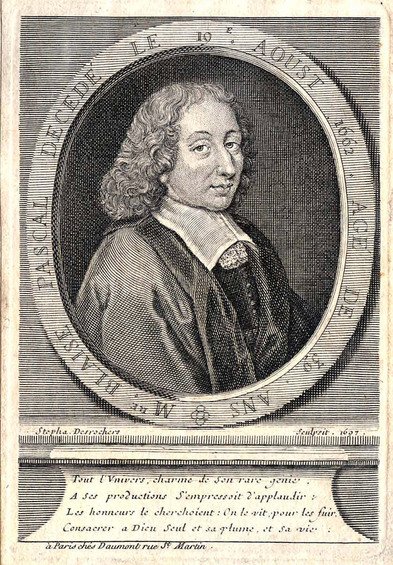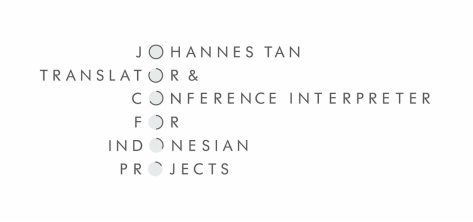Between Stockholm Syndrome and Lima Syndrome
Part 46: The Art of Overcompensation

All forms of dedication, devotion, loyalty and self surrender are in essence a desperate clinging to something which might give worth and meaning to our futile, spoiled lives.
-ERIC HOFFER
In the previous Part, I concluded by stating the law of unintended consequences in the religious industrial complex. Religion does not necessarily improve individual responsibility and accountability. In fact, history has shown us again and again that organized religions, to an alarming extent, somehow, accidentally, institutionalize irresponsibility and impunity. As observed by African-American social reformer, abolitionist, and author Frederick Douglass (1818-1895) in Part 43: "The most brutal slaveholders were always the most devout." Not surprisingly, the most corrupt politicians have always been the most devout. Idem ditto: The most religious societies tend to be more exposed to violent crime rates, high infant mortality rates, poverty rates and rampant corruption than the most secular ones. Somehow organized religions seem to provide a convenient bullet-proof shield against individual responsibility and accountability.
Part 7 (A Little Old Lady and an Atheist Man) cites two separate studies which confirmed that atheists are under-represented in the U.S. prison system population, while so-called believers are over-represented. The Corruption Perception Index (CPI)—annually published by Transparency International (Berlin) since 1995—ranks the least religious countries with high numbers of atheists-per-capita (Denmark, New Zealand, Finland, Sweden, Norway, Singapore) consistently on the top, while the most religious countries with high numbers of believers-per-capita (Somalia, Sudan, Afghanistan, Iraq, Libya, Yemen) consistently on the bottom.
Truly, are all these aforementioned anomalies merely mind-blowing coincidences, or do we fail to connect the dots?
To say that organized religions beget corruption and fanaticism, is to state the obvious. Yet our 21st-century society has been very good in perfecting denialism, which is defined as "irrational action that withholds the validation of an historical experience or event, by persons refusing to accept an empirically verifiable reality."
Indeed a less direct version of denialism is cognitive dissonance, coined by American social psychologist Leon Festinger (1919-1989). Festinger defined cognitive dissonance as "the mental stress or discomfort experienced by an individual who holds two or more contradictory beliefs, ideas, or values at the time, performs an action that is contradictory to one or more beliefs, ideas or values, or is confronted by new information that conflicts with existing beliefs, ideas, or values." Simply put, cognitive dissonance is the gap between one's sugarcoated beliefs and the bitter Truth.
Martinique-born psychiatrist and philosopher Frantz Omar Fanon (1925-1961) who was influential in post-colonial studies and critical theory, highlighted this cognitive dissonance in his "Black Skin, White Masks" (Peau Noire, Masques Blancs, 1952). "Sometimes people hold a core belief that is very strong," Fanon wrote. "When they are presented with evidence that works against that belief, the new evidence cannot be accepted. It would create a feeling that is extremely uncomfortable, called cognitive dissonance. And because it is so important to protect the core belief, they will rationalize, ignore and even deny anything that doesn't fit in with the core belief."
Indeed no one put this universal aversion against the bitter Truth better than French mathematician, physicist, and philosopher Blaise Pascal (1623-1662) in his Pensees:
Man would fain be great and sees that he is little;
would fain be happy and sees that he is miserable;
would fain be perfect and sees that he is full of imperfections;
would fain be the object of the love and esteem of men,
and sees that his faults merit only their aversion and contempt.
The embarrassment wherein he finds himself
produces in him the most unjust and criminal passions imaginable,
for he conceives a mortal hatred against that truth
which blames him and convinces him of his faults.
Naturally denialism generates defense mechanisms which are psychological strategies utilized by our unconscious mind to deny, manipulate, or even distort reality as a defense against anxiety to maintain our self interests. Denialism, cognitive dissonance and their respective defense mechanisms are thus manifested in paradoxical behaviors. In this regard, American philosopher Eric Hoffer (1898-1983) provided an illuminating explanation in The True Believer: Thoughts on the Nature of Mass Movements (1951). "Faith in a holy cause," Hoffer wrote, "is to a considerable extent a substitute for the lost faith in ourselves." Then further on: "The less justified a man is in claiming excellence for his own self, the more ready is he to claim all excellence for his nation, his religion, his race or his holy cause."
Welcome to the Art of Overcompensation.
Thus the brutal slaveholders, the corrupt politicians, the theocratic societies, the over-represented believers in prison population, the most corrupt countries as per CPI, the pedophilic priests, the barbaric jihadists—all dissected surgically by Hoffer in just two sentences.
[To be continued.]
Johannes Tan, Indonesian Translator & Conference Interpreter
-ERIC HOFFER
In the previous Part, I concluded by stating the law of unintended consequences in the religious industrial complex. Religion does not necessarily improve individual responsibility and accountability. In fact, history has shown us again and again that organized religions, to an alarming extent, somehow, accidentally, institutionalize irresponsibility and impunity. As observed by African-American social reformer, abolitionist, and author Frederick Douglass (1818-1895) in Part 43: "The most brutal slaveholders were always the most devout." Not surprisingly, the most corrupt politicians have always been the most devout. Idem ditto: The most religious societies tend to be more exposed to violent crime rates, high infant mortality rates, poverty rates and rampant corruption than the most secular ones. Somehow organized religions seem to provide a convenient bullet-proof shield against individual responsibility and accountability.
Part 7 (A Little Old Lady and an Atheist Man) cites two separate studies which confirmed that atheists are under-represented in the U.S. prison system population, while so-called believers are over-represented. The Corruption Perception Index (CPI)—annually published by Transparency International (Berlin) since 1995—ranks the least religious countries with high numbers of atheists-per-capita (Denmark, New Zealand, Finland, Sweden, Norway, Singapore) consistently on the top, while the most religious countries with high numbers of believers-per-capita (Somalia, Sudan, Afghanistan, Iraq, Libya, Yemen) consistently on the bottom.
Truly, are all these aforementioned anomalies merely mind-blowing coincidences, or do we fail to connect the dots?
To say that organized religions beget corruption and fanaticism, is to state the obvious. Yet our 21st-century society has been very good in perfecting denialism, which is defined as "irrational action that withholds the validation of an historical experience or event, by persons refusing to accept an empirically verifiable reality."
Indeed a less direct version of denialism is cognitive dissonance, coined by American social psychologist Leon Festinger (1919-1989). Festinger defined cognitive dissonance as "the mental stress or discomfort experienced by an individual who holds two or more contradictory beliefs, ideas, or values at the time, performs an action that is contradictory to one or more beliefs, ideas or values, or is confronted by new information that conflicts with existing beliefs, ideas, or values." Simply put, cognitive dissonance is the gap between one's sugarcoated beliefs and the bitter Truth.
Martinique-born psychiatrist and philosopher Frantz Omar Fanon (1925-1961) who was influential in post-colonial studies and critical theory, highlighted this cognitive dissonance in his "Black Skin, White Masks" (Peau Noire, Masques Blancs, 1952). "Sometimes people hold a core belief that is very strong," Fanon wrote. "When they are presented with evidence that works against that belief, the new evidence cannot be accepted. It would create a feeling that is extremely uncomfortable, called cognitive dissonance. And because it is so important to protect the core belief, they will rationalize, ignore and even deny anything that doesn't fit in with the core belief."
Indeed no one put this universal aversion against the bitter Truth better than French mathematician, physicist, and philosopher Blaise Pascal (1623-1662) in his Pensees:
Man would fain be great and sees that he is little;
would fain be happy and sees that he is miserable;
would fain be perfect and sees that he is full of imperfections;
would fain be the object of the love and esteem of men,
and sees that his faults merit only their aversion and contempt.
The embarrassment wherein he finds himself
produces in him the most unjust and criminal passions imaginable,
for he conceives a mortal hatred against that truth
which blames him and convinces him of his faults.
Naturally denialism generates defense mechanisms which are psychological strategies utilized by our unconscious mind to deny, manipulate, or even distort reality as a defense against anxiety to maintain our self interests. Denialism, cognitive dissonance and their respective defense mechanisms are thus manifested in paradoxical behaviors. In this regard, American philosopher Eric Hoffer (1898-1983) provided an illuminating explanation in The True Believer: Thoughts on the Nature of Mass Movements (1951). "Faith in a holy cause," Hoffer wrote, "is to a considerable extent a substitute for the lost faith in ourselves." Then further on: "The less justified a man is in claiming excellence for his own self, the more ready is he to claim all excellence for his nation, his religion, his race or his holy cause."
Welcome to the Art of Overcompensation.
Thus the brutal slaveholders, the corrupt politicians, the theocratic societies, the over-represented believers in prison population, the most corrupt countries as per CPI, the pedophilic priests, the barbaric jihadists—all dissected surgically by Hoffer in just two sentences.
[To be continued.]
Johannes Tan, Indonesian Translator & Conference Interpreter

 RSS Feed
RSS Feed